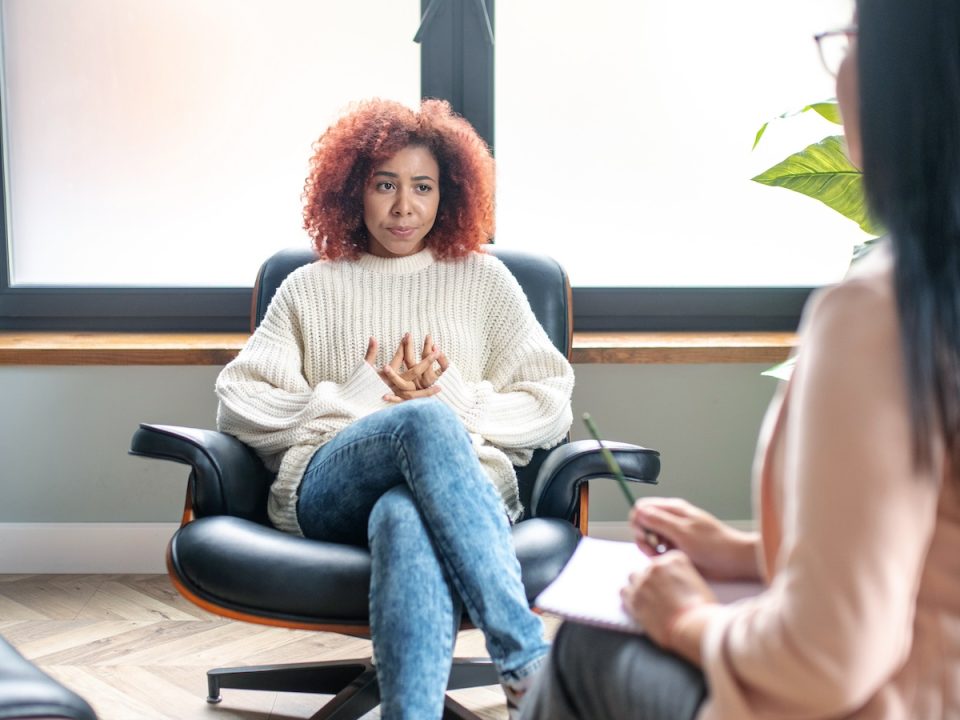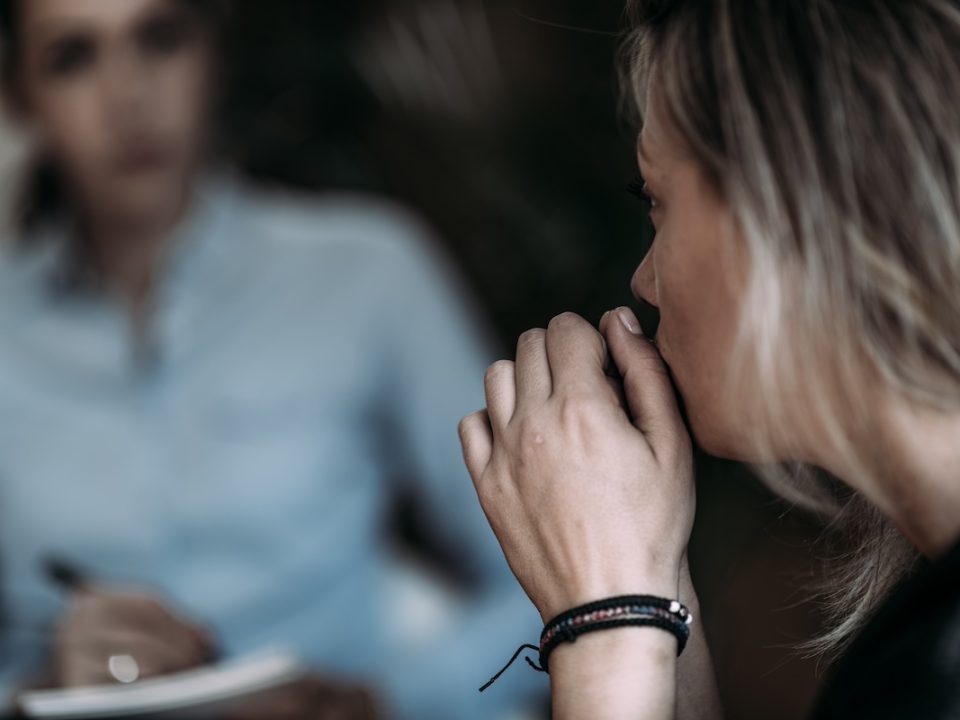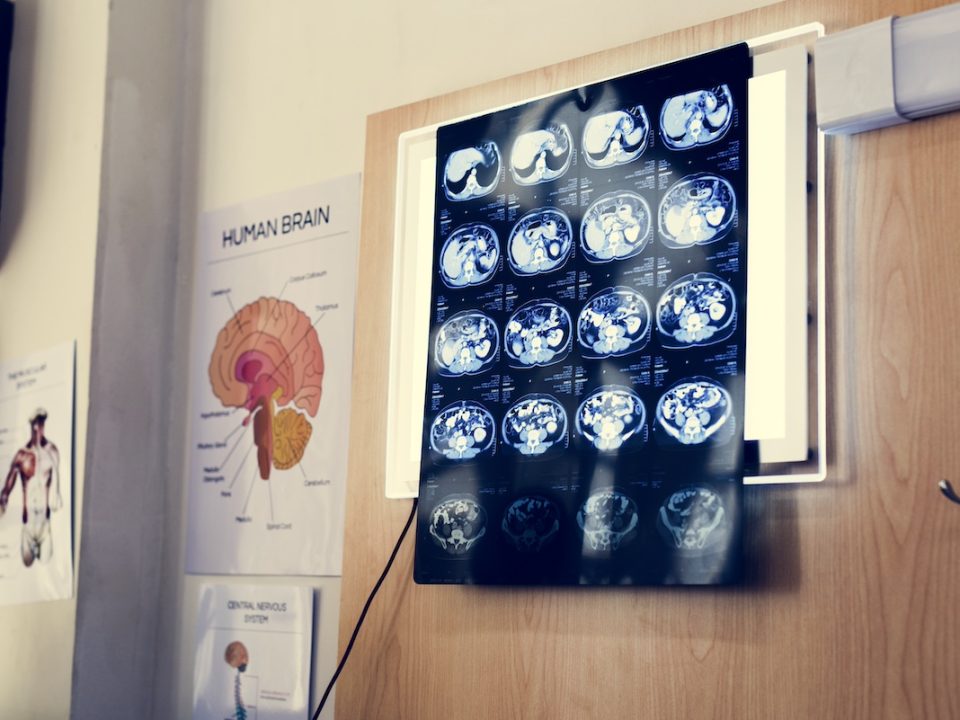
Do I Have Anxiety? Recognizing Symptoms in Men and Women
May 7, 2024
A Deep Dive into Understanding Depression: The Silent Struggle Within
May 14, 2024Anxiety can be overwhelming and debilitating, but there are effective strategies for managing and calming its effects. In this blog, we’ll explore the best practices for calming down anxiety, including techniques for managing anxiety attacks, calming exercises, and creating a comprehensive treatment plan.

Understanding Anxiety
Anxiety is a natural response to stress or perceived threats, but when it becomes excessive or persistent, it can interfere with daily life and well-being. Symptoms of anxiety may include feelings of worry, fear, nervousness, restlessness, and physical symptoms such as rapid heartbeat, sweating, and trembling.
How to Calm Down Anxiety
1. Practice Deep Breathing:
Deep breathing exercises are a powerful tool for calming anxiety and promoting relaxation. Try the following technique:
- Find a comfortable seated position
- Close your eyes and take a slow, deep breath through your nose, counting to four
- Hold your breath for a moment, then exhale slowly through your mouth, counting to four
- Repeat this process several times, focusing on the sensation of your breath filling your lungs and the feeling of relaxation with each exhale
2. Practice Mindfulness:
Mindfulness involves being fully present in the moment and accepting your thoughts and feelings without judgment. Mindfulness techniques, such as meditation, guided imagery, or body scanning, can help reduce anxiety and promote a sense of calm.
3. Engage in Movement:
Moving your body is an excellent way to reduce anxiety and improve mood. Activities that involve rhythmic movement are especially beneficial, as they help the body return to a state of meditation. Walking, yoga, or dancing can all be beneficial for calming anxiety.
4. Limit Caffeine and Alcohol:
Caffeine and alcohol can worsen anxiety symptoms, so it’s essential to limit your intake. Instead, opt for non-caffeinated beverages like herbal tea or water, and avoid alcohol, especially in the evening, as it can disrupt sleep.
5. Practice Progressive Muscle Relaxation:
Progressive muscle relaxation involves tensing and relaxing different muscle groups to release tension and promote relaxation. Start by tensing a specific muscle group for a few seconds, then relax and release the tension. Move through each muscle group, from your toes to your head, gradually releasing tension throughout your body.
Ways to Calm Anxiety Attacks
1. Use Grounding Techniques:
During an anxiety attack, grounding techniques can help you bring yourself back to the present moment. Focus on your senses by naming five things you can see, four things you can touch, three things you can hear, two things you can smell, and one thing you can taste.
2. Practice Controlled Breathing:
During an anxiety attack, your breathing may become rapid and shallow, exacerbating feelings of panic—practice controlled breathing by taking slow, deep breaths in through your nose and out through your mouth. Counting your breaths can help focus your attention and calm your mind.
3. Use Visualization:
Visualize a calming scene or place that brings you comfort and peace. Close your eyes and imagine yourself in this place, focusing on the details and sensations. Visualization can help distract your mind from anxious thoughts and promote relaxation.
4. Seek Support:
Reach out to a trusted friend, family member, or mental health professional for Support during an anxiety attack. Talking to someone you trust can help reduce isolation and provide reassurance and perspective.
Treatment Plans
In addition to these self-help strategies, it’s essential to develop a comprehensive treatment plan for managing anxiety. This may include:
- Therapy: Cognitive-behavioral therapy (CBT), exposure therapy, and other forms of psychotherapy can help individuals identify and challenge negative thought patterns and develop coping skills for managing anxiety.
- Medication: In some cases, medication be prescribed to help manage anxiety symptoms. Common medications for anxiety include selective serotonin reuptake inhibitors (SSRIs), serotonin-norepinephrine reuptake inhibitors (SNRIs), and beta-blockers.
- Lifestyle Changes: Making lifestyle changes such as improving sleep hygiene, reducing stress, nourishing your body, and avoiding alcohol and caffeine can help reduce anxiety symptoms and improve overall well-being.
- Self-Care: Practicing self-care activities such as engaging in hobbies, spending time with loved ones, getting regular body movements, and practicing relaxation techniques can help reduce stress and promote emotional well-being.
Managing anxiety requires a combination of self-help strategies, support from others, and professional treatment. Incorporating calming exercises, mindfulness techniques, and lifestyle habits into your daily routine can reduce anxiety symptoms and improve your overall quality of life.
Remember, it’s essential to develop a comprehensive treatment plan that addresses both the physical and psychological aspects of anxiety and to seek help from a qualified healthcare professional if needed.
_________________________________________________________________________________
Looking for treatment for an eating disorder, anxiety, depression, trauma, or postpartum mood disorder?
Evolve Counseling Services is a specialized team of Licensed Therapists providing treatment in Paoli, Pennsylvania.



